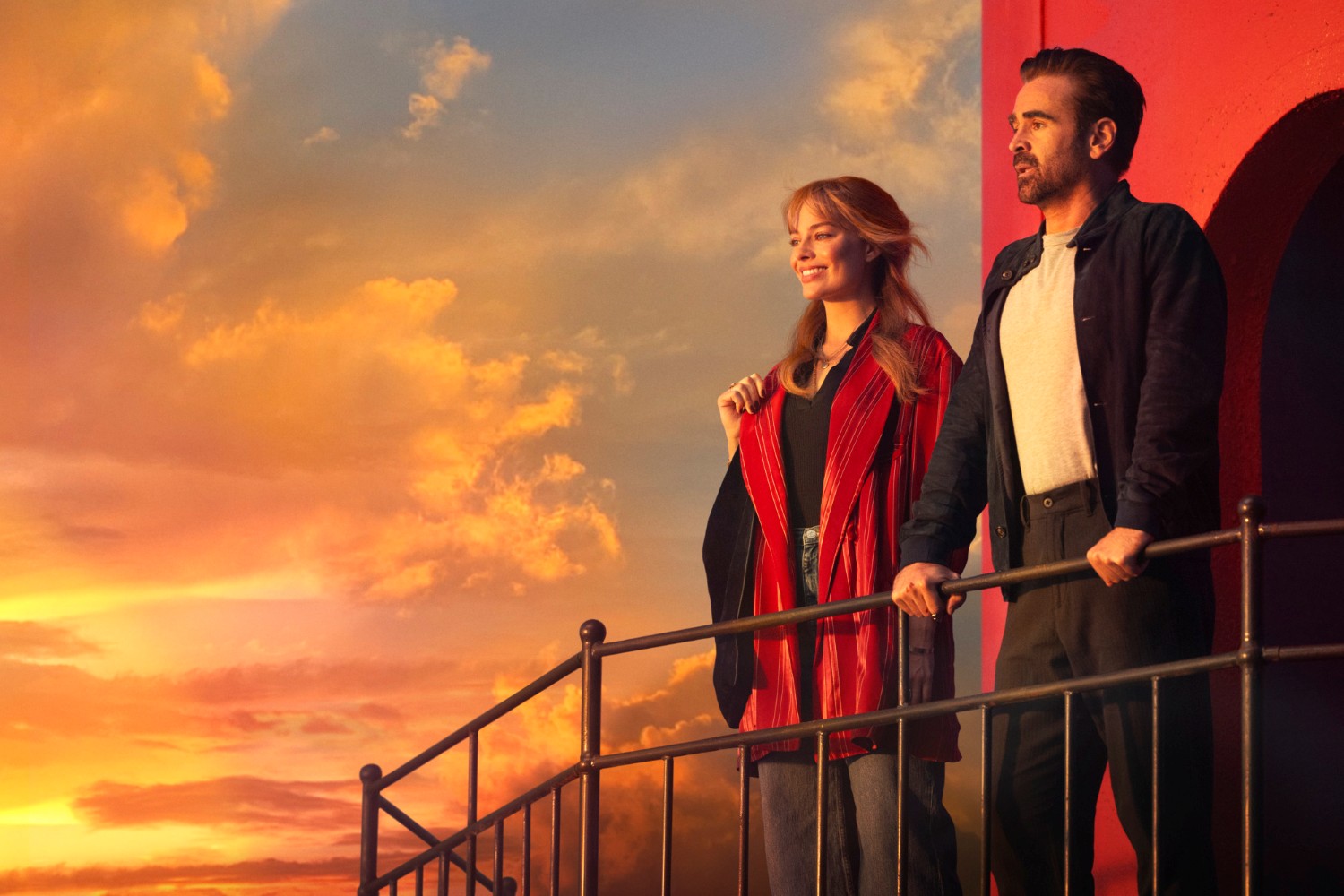by Cain Noble-Davies
Worth: $8.00
FilmInk rates movies out of $20 — the score indicates the amount we believe a ticket to the movie to be worth
Cast:
Margot Robbie, Colin Farrell, Lily Rabe, Hamish Linklater, Phoebe Waller-Bridge, Kevin Kline, Jennifer Grant, Jodie Turner-Smith, Sarah Gadon
Intro:
… a performative bore.
We have found the 2020s’ answer to Collateral Beauty.
While the latest film from video essayist turned heartfelt filmmaker Kogonada isn’t quite the same mixture of treacle, incomprehensibility, and awful behaviour as one of modern cinema’s greatest mistakes, it still shares a lot of the same faults. Colin Farrell and Margot Robbie, two extremely talented performers, are given utterly unlikable characters to inhabit, neither of whom have any genuine chemistry with the other, which is a bit of a problem for a romance film.
The trauma breadcrumb trail that they and the audience follow over the course of the film, guided by the ambiguous Car Rental Agency and what can only be described as a SAP 9000 GPS, keeps trying to give the impression that there is more to these two than just being disgruntled romcom New Yorkers, and not only fails to convince but is unable to hide the contrivance behind every single attempt to do so. From the empty, forced dialogue, to the meandering trips to the past via literal magic doors, to the eye-watering Burger King product placement, it is as smooth as broken glass, like the aftermath of a car crash between About Time and I Heart Huckabees.
The most that they manage to gain is a level of self-awareness of just how terrible they are as people, and why finding partnership at this juncture isn’t the best idea, but never to the point of changing or even fully recognising the extent of their damage. The film is just too intoxicated on its own whimsy and ‘we know that theatre kids exist but have never actually met one before’ energy, and in a story with zero grounding or connective plot tissue (this is one of the most “this happened, then this happened, and then this happened’-ahh movies of the year), it just floats off into the clouds, not even caring about whoever was supposed to be holding its tether to any form of emotional reality.
Even though Kogonada isn’t handling the editing or scripting here (two immediate red flags, as that’s where he shines best), the story still has moments that feel like he signed onto this for a reason. It taps into similar musings about the importance of individual moments and how they are preserved/remembered that populated his video essay work on directors like Linklater and Ozu, as well as his own features like After Yang. He and DP Benjamin Loeb put a lot of effort into the magical realist visuals, like the aforementioned magical doors, the sudden performance of How to Succeed in Business Without Really Trying, and just how beautiful the world looks through their combined lens. And yet, with the often-drastic shifts in style, from semi-naturalistic shots during the overarching road trip, to abstract drama exercise spaces, even those flights of fancy end up lending to the hollow chaos of the story.
A Big Bold Beautiful Journey is a performative bore. It trades so cynically in base ‘American indie romcom’ stereotypes (right down to its Manic Pixie Dream Girl love interest) and thoughtless endorsement of nostalgia chasing that it could almost be a parody of what the studio system assumes American indie filmmaking to look like. The central romance is bland beyond belief, the feels are close-to-non-existent (there’s a small moment between Margot Robbie and Lily Rabe playing pretend that actually works), and the visual presentation just comes across as colossal overcompensation for a story with the emotional intelligence of an actual door. At the next roundabout, make an immediate U-turn away from this thing.




